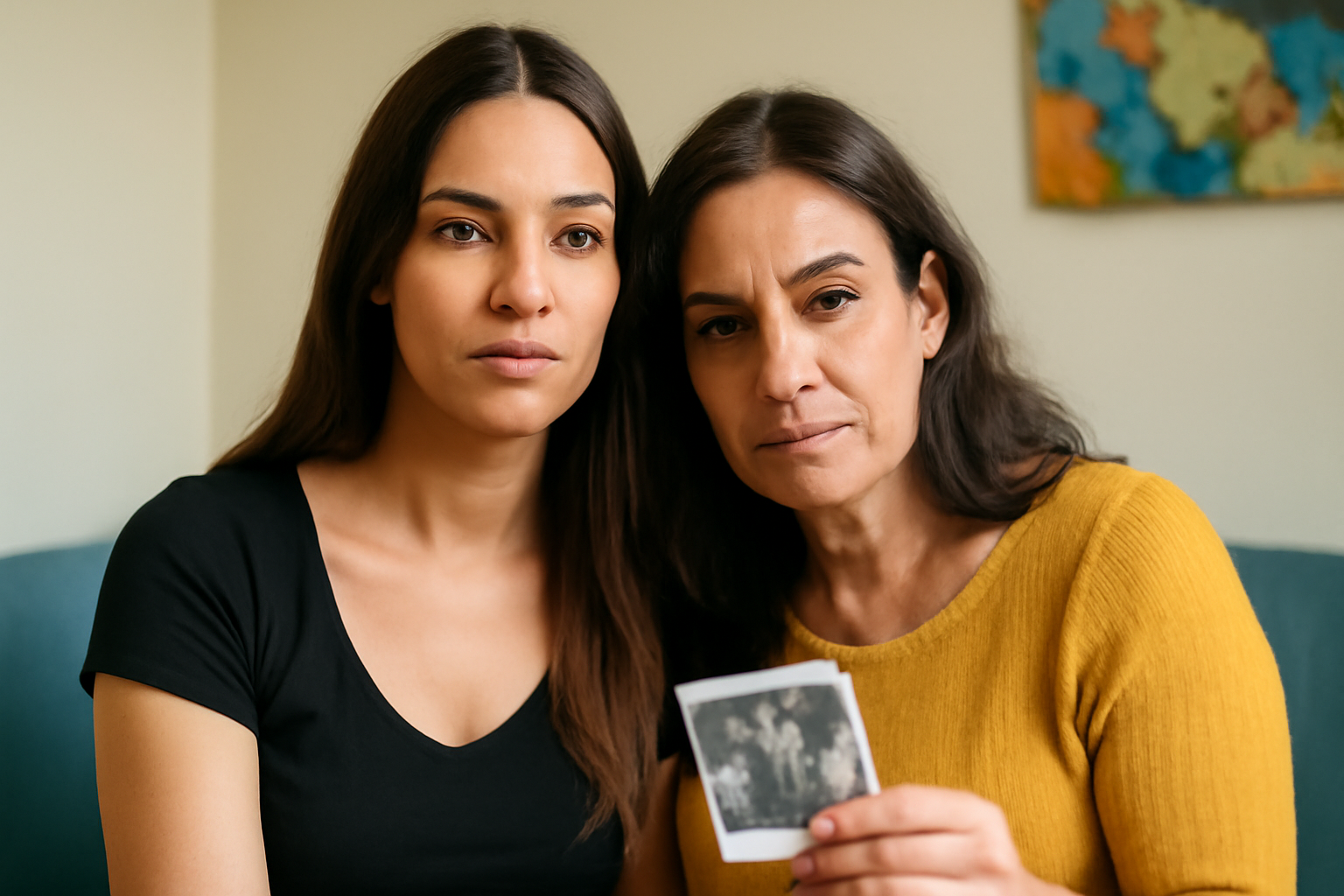
Editor’s note: Our reporter was on assignment in Argentina and Uruguay from April 2-12, 2025.
ROSARIO, Argentina — In the heart of Argentina’s Santa Fe province, two transgender women are shedding light on a dark period of history. Carolina Boetti and Marzia Echenique have taken on the task of documenting the persecution of transgender individuals under the military dictatorship that ruled Argentina from 1976 to 1983.
In 2020, Boetti and Echenique launched the Travestí Trans Santa Fe Archive. This archive aims to "create a collective memory" of the atrocities faced by the transgender community during the dictatorship. The term "Travestí" is often used in Latin America to describe a crossdresser, although it has broader implications in the region's LGBTQ+ discourse.
The archive is a collection of interviews with trans women who were arrested, tortured, and harassed by the regime. It also includes photographs from that era, capturing the stark realities faced by those who did not conform to gender norms.
While the archive does not have a permanent physical location, Boetti and Echenique have made efforts to spread their message. They have presented their work in schools, universities, and even a museum in Rosario dedicated to the victims of the dictatorship. The city of Rosario, located approximately 200 miles northwest of Buenos Aires, remains a focal point for memory and justice.
In an interview conducted on April 11 in a Rosario hotel, Boetti and Echenique shared their hopes of securing funds to digitize their archive and eventually find it a permanent home. "We have this material that is fantastic," Boetti remarked, highlighting the importance of preserving these stories.
It is estimated that the dictatorship led to the deaths or disappearances of over 30,000 people in what is known as the "dirty war." The regime targeted various groups, including students, journalists, labor leaders, and anyone deemed a threat. In this oppressive climate, transgender individuals were particularly vulnerable.
Marzia Echenique was first detained in 1979 at the age of 16. She recalls that the regime targeted trans women because they defied the strict binary of man and woman imposed by the dictatorship. "Everything else was penalized, deprived of all rights. They took away everything," she recounted.
Carolina Boetti was similarly targeted, first detained at 15 due to her sexual orientation. During the dictatorship, homosexuality was criminalized, and laws penalized crossdressing, prostitution, and vagrancy with harsh penalties.
Despite the dictatorship's end in 1983, Boetti and Echenique emphasize that the trans community continued to face discrimination long after. Echenique, who left Argentina in 1988 and returned in 2006, pointed out that for the trans community, the persecution persisted.
Notably, the cities of Rosario and the provincial capital Santa Fe implemented a reparations policy for trans individuals who suffered under the dictatorship. In 2018, during an International Day Against Homophobia, Biphobia, and Transphobia, Boetti became the first trans person to receive reparations in Argentina. She receives a monthly pension and health care stipend, a recognition of the injustices she endured.
Boetti and Echenique note that only 10 of the 50 known trans women persecuted in Santa Fe during the dictatorship are still alive. Their work is not just about preserving history but also about seeking justice and acknowledgment for those who suffered.
Following the dictatorship, Argentina has made significant strides in LGBTQ+ rights. The landmark Gender Identity Law of 2012 allows trans and nonbinary individuals to legally change their gender without medical intervention. The country also legalized same-sex marriage in 2010.
However, recent political developments under President Javier Milei have threatened these advancements. Since taking office in December 2023, Milei has implemented measures that restrict access to gender-affirming care for minors and have rolled back protections for trans individuals.
Boetti remains hopeful, asserting that while Argentina may not revert to a dictatorship, the fight against hate speech and discrimination continues. "There are now laws that protect us, but there is a fight for sure," Echenique echoed, underscoring the importance of preserving their history as a form of resistance and empowerment.
In the face of ongoing challenges, Boetti and Echenique's work stands as a testament to resilience and the enduring fight for justice and equality.
Related Posts
Fantastic Four: First Steps Unveils Marvel's Powerful, Pansexual Hero
**The Fantastic Four: First Steps - A New Era Begins** *The Fantastic Four: First Steps* kicks off an exciting chapter in Marvel's cinematic universe by introducing a key player: Franklin Richards. This adaptation, much like its comic book inspiration, takes us on a journey as Franklin grows from a baby with mysterious abilities, eventually becoming one incredibly powerful character in Marvel's l [...]
The Evolution of NFL Draft Scouting Reports: From Vivid Descriptions to Bland Profiles
While scrolling through dating app profiles not too long ago, I came across some strikingly descriptive lines that caught my eye: - "V-shaped torso with a well-defined upper body, good bubble, developed calves, and good chest thickness." - "Muscular frame with well-developed arms, shoulders, and chest, thick thighs and calves, a tight waist and abdomen, and good bubble." - "Solid, thick build wit [...]
Rep. Andrea Salinas Advocates for the Protection of LGBTQ+ Crisis Support Line
A mother's mission: standing up For LGBTQ+ mental health When Rep. Andrea Salinas (D-OR) got a frantic call from her daughter, who identifies as a lesbian, she felt a wave a fear wash over her. Every parent knows that feeling—the desperate urge, almost an ache, that you have when your child's in pain. "It's harrowing being on that call, promising help when every instinct screams that you need m [...]